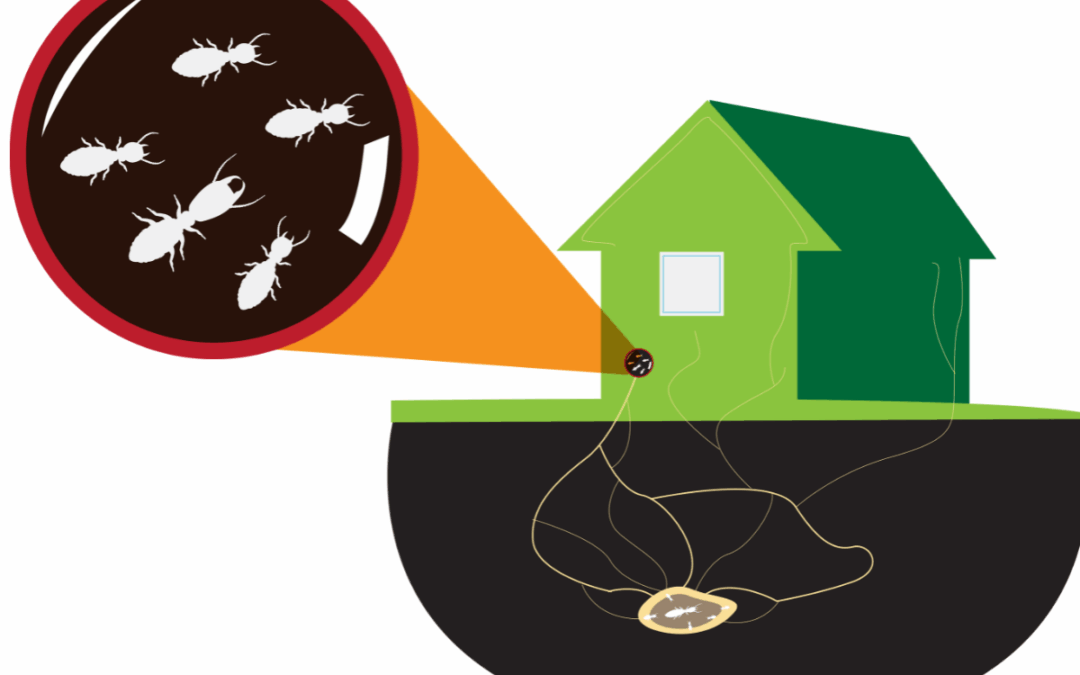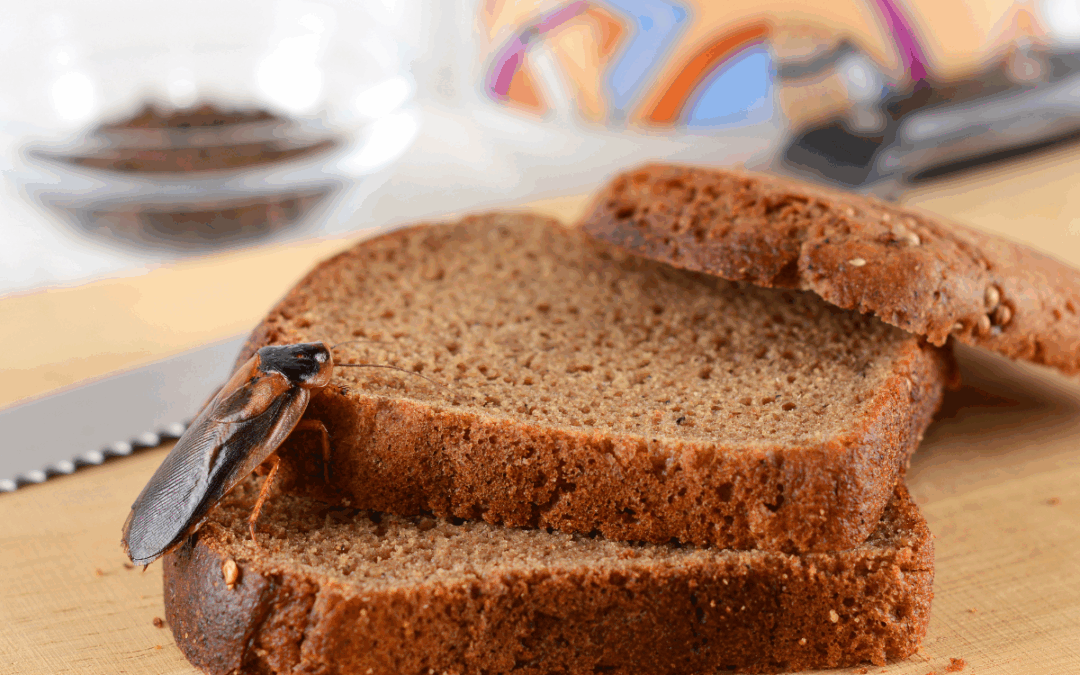READY TO GET STARTED?
REQUEST A FREE ESTIMATE
Fill out the form below or call (888) 466-7849 for a free, no-obligation estimate.

As winter arrives in Homewood, Alabama, many homeowners believe that pest activity comes to a halt. While colder temperatures do slow down many insects, termites are a relentless exception. The assumption that termites go dormant during the winter can lead to a false sense of security, leaving your property vulnerable to continuous, hidden damage. Understanding that termite season never truly ends in Alabama is crucial for protecting your most significant investment. Even in December, these wood-destroying insects remain active, foraging for food and expanding their colonies. This guide explains why termites persist through the cooler months and what preventative measures for termite control you can take to defend your Homewood home.
Unlike other regions with harsh winters, Homewood’s climate is mild enough to support year-round termite activity. Subterranean termites, the most prevalent species in Alabama, are particularly well-adapted to survive cooler temperatures.
Subterranean termites build their colonies deep in the soil, which acts as natural insulation against surface temperature fluctuations. While the air may be chilly, the ground remains warm enough for the colony to continue its daily functions without interruption. The queen continues to lay eggs, and worker termites venture out in search of food.
Termites are in constant search of cellulose, which is found in wood. Your home’s structure provides an ideal, climate-controlled environment with an abundant food supply. Once termites establish a path into your house, they are shielded from the outdoor elements and can continue their destructive feeding habits 24/7, regardless of the season.
Because termite damage occurs out of sight, infestation can progress for months or even years before being discovered. This silent destruction is what makes termites such a significant threat to homeowners.
Termites consume wood from the inside out, hollowing support beams, floor joists, and wall studs. Over time, this can weaken your home’s structure, leading to serious issues like sagging floors, warped ceilings, and compromised foundations. These repairs can be extensive and are typically not covered by standard homeowners’ insurance policies.
Believing that termites are inactive in December can cause homeowners to dismiss potential warning signs, such as mud tubes on the foundation or wood that sound hollow when tapped. This delay allows the colony to grow and cause more significant damage, turning a manageable issue into a major structural problem.
Proactive prevention is the most effective approach to termite management. By making your property less attractive to these pests, you can create a powerful defense for your home.
Termites depend on moisture to survive. Eliminating excess water is a critical step in any termite control plan.
Direct contact between wood and the ground creates an easy pathway for termites to enter your home.
While these preventative tips are beneficial, the most reliable method for identifying and managing a termite threat is through a professional inspection. The winter months are an excellent time to schedule this service, as it allows you to address any vulnerabilities before the peak swarm season in spring.
A certified termite control specialist can perform a detailed inspection of your property, identify signs of termite activity you might miss, and recommend a customized treatment and prevention plan. For professional termite control services in Homewood, AL, contact an expert to ensure your home is protected throughout the year.

The holiday season in Bonita Springs is a time for enjoying mild weather and festive gatherings, not for worrying about unwanted pests. While much of the country deals with snow, our pleasant climate means many insects and rodents remain active. As you prepare your home for guests and celebrations, it’s important to remember that pests are also looking for shelter and food. For homeowners who prefer environmentally responsible solutions, keeping your home pest-free does not require the use of harsh chemicals. This guide provides practical, eco-friendly strategies to help you protect your Bonita Springs home this December. By focusing on prevention and exclusion, you can ensure your holidays remain comfortable and uninterrupted by pests.
Florida’s subtropical climate is a key reason pests are a year-round concern. While our December weather might be cooler, it is rarely cold enough to cause insects or rodents to hibernate or die off. Instead, the slight drop in temperature and changes in outdoor conditions drive them to seek more stable environments. Your home offers the warmth, moisture, and food sources they need to thrive.
During the winter months, Bonita Springs homeowners often see an increase in specific pests moving indoors:
Choosing an eco-friendly pest control approach focuses on long-term prevention by understanding pest behavior and making your environment less inviting to them—delivering effective, sustainable results that protect your family, pets, and the planet.
You can take several effective, chemical-free steps to fortify your home against pests this holiday season.
The most effective eco-friendly strategy is exclusion—blocking pests before they can get inside.
Pests enter your home looking for resources. By limiting their access to food and water, you make your home less appealing.
The area immediately surrounding your home can either invite or deter pests.
While these preventative measures are highly effective, an established infestation may require more direct intervention. If you continue to see pests despite your best efforts, consulting a professional is the next step in your eco-friendly strategies for pest control.

December brings unique challenges for business owners. As temperatures drop, rodents like mice and rats move indoors in search of warmth and food, making commercial spaces a prime target for infestations. When signs of activity appear, the question quickly becomes: handle it yourself or call a professional commercial exterminator?
For businesses, pest issues are more than a nuisance — they threaten reputation, operations, and compliance. Choosing between DIY methods and professional pest control services is an important decision.
A rodent problem in a commercial setting can impact customers, employees, and your brand image. Rodents contaminate inventory, damage wiring and structures, and create unsanitary conditions. In industries like food service, hospitality, and healthcare, even one sighting can lead to failed inspections, bad reviews, and lost trust.
Many business owners start with DIY methods, such as traps or baits, for a quick and inexpensive fix. While this can offer short-term relief, there are clear limitations.
Potential Positives
Key Drawbacks
A licensed commercial exterminator offers a strategic, long-term solution tailored to your business.
Benefits of Professional Service
DIY solutions may seem cost-effective, but they often provide only temporary relief. A professional commercial exterminator delivers the expertise, strategy, and documentation needed to protect your business long-term.
Don’t let a winter rodent issue threaten your operation or reputation. Schedule a professional inspection this December and keep your business protected year-round with commercial pest control services.

December in Naples brings beautiful weather and festive holiday preparations. While many people believe that pests become less of a concern during the cooler months, termites are one threat that never takes a day off. Florida’s mild climate allows these destructive insects to remain active year-round, silently putting your property at risk even as you decorate for the holidays. For homeowners, understanding that termites don’t hibernate is crucial for protecting your most valuable asset. The arrival of winter does not mean your home is out of danger. This guide will explain why termite activity persists in December and outline the essential defensive strategies you can implement to protect your Naples home.
Unlike in colder climates where insects die off or go dormant, the subtropical environment of Naples provides ideal conditions for termites to thrive throughout the year. Subterranean termites, the most common type in this region, build their colonies deep underground where they are insulated from minor temperature fluctuations.
The soil in South Florida remains warm and moist enough for termites to continue foraging, feeding, and expanding their colonies. They are not exposed to the harsh freezes that would force them into inactivity. Your home’s structure provides a consistent, climate-controlled environment, offering them a perfect place to find food and shelter from any slight temperature drops.
Termites feed on cellulose, the primary component of wood. Your home’s wooden framework, from the foundation to the roof trusses, represents an endless buffet. Because their food source is readily available and protected from the elements, their destructive habits continue unabated through every season.
A termite infestation is one of the most significant threats a homeowner can face. The damage they cause is often gradual and hidden from view, making it difficult to detect until it becomes severe.
Termites eat wood from the inside out, hollowing out support beams, floor joists, and wall studs. Over time, this can compromise the structural integrity of your home, leading to sagging floors, warped walls, and weakened foundations. This damage can be incredibly expensive to repair and is typically not covered by homeowner’s insurance.
Because termites operate behind walls and underground, an infestation can go unnoticed for years. By the time visible signs appear—such as mud tubes on the foundation, discarded wings, or wood that sounds hollow when tapped—extensive damage may have already occurred.
The most effective way to combat termites is through prevention. By making your home less appealing to these pests, you can significantly reduce the risk of an infestation.
Termites require moisture to survive. Reducing excess water around your property is a critical step in termite defense.
Termites can easily access your home through any wood that touches the ground.
Even small openings can provide termites with access to your home.
While these preventative measures are helpful, the only certain way to identify and manage a termite problem is with professional assistance. If you have not had a recent termite inspection, December is an excellent time to schedule one.
A trained pest control expert can conduct a thorough inspection of your property to detect any signs of termite activity. They can identify vulnerabilities and recommend a tailored prevention and treatment plan to address your home’s specific needs. Contact a professional termite control service today to schedule an inspection and ensure your Naples home is protected from termites this holiday season and beyond.

Winter in Savannah brings cooler temperatures and a break from the summer heat, but not from pest activity. Because the area’s winters are mild, many pests remain active — often moving indoors in search of warmth, food, and shelter. Rodents, cockroaches, and spiders are among the most common intruders this time of year. Understanding which common winter pests stay active and how to keep them out is the first step to protecting your home all season long.
Even a subtle drop in temperature can signal a significant change for pests. As their natural outdoor habitats become less hospitable, your home offers an ideal alternative with stable temperatures, moisture, and a consistent supply of food. This instinctive drive for survival is what leads to an increase in indoor pest sightings during the winter months. These pests can enter through the smallest of openings, turning your home into their winter retreat.
House mice and roof rats are two of the most common pests to invade Savannah homes in winter. They are intelligent and resourceful, capable of squeezing through tiny cracks and holes to gain entry.
Cockroaches are a year-round problem in Georgia, but their indoor presence can become more noticeable in winter. Species like the American cockroach and the German cockroach are experts at finding their way inside.
Spiders are not typically winter pests, but they often follow their food source—other insects—indoors. If you see an increase in spiders, it could be a sign of another underlying pest issue.
A proactive approach is the best way to maintain a pest-free home. Focusing on exclusion and sanitation can make your property far less appealing to these unwanted winter guests.
Carefully inspect your home’s exterior for any gaps or openings that pests could use to get inside.
Remove the food, water, and shelter that pests are searching for.
While these prevention methods are effective, an established pest population can be difficult to manage on your own. If you see signs of infestation, such as droppings, gnaw marks, or the pests themselves, it is time to consult a pest control professional to ensure your Savannah home remains a comfortable, pest-free space this winter.